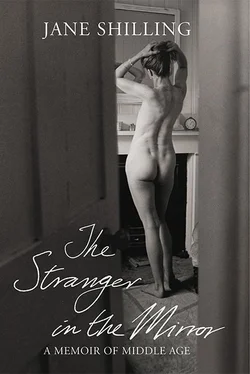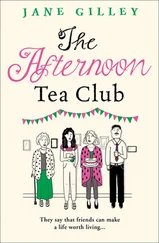Almost anyone whom I’d asked for advice at this point would have said, for goodness’ sake, let it go. It’s an unsatisfactory ending to an unsatisfactory story. What else did you expect? Move on.
The trouble was that I couldn’t, in the brisk, resolute style in which other people seemed to manage their emotional lives, move on. I felt sure that my old love’s reappearance presaged one of the last great choices I would have to make: whether to spend the rest of my life alone, or attempt, almost certainly for the last time, the adventure of spending it as half of a couple. For that was what he appeared, in oblique fashion, to be suggesting. And although I was vividly aware of the folly of allowing myself to trust someone who wouldn’t, or couldn’t, tell me what was in his heart, the fact was that I was now apparently being offered a version of what I had wanted for so many years.
Most of my adult life had been spent in a state of tense anticipation of the moment at which someone would choose me; my completing half would turn up, we would cleave together, neat and inevitable as magnets, and the rest of our lives would be spent growing together into a single entity, like the two old trees into which Baucis and Philemon are changed at the end of their lives in the myth.
Twice I had thought I had found my completing half, and twice I had found that I was mistaken when the completing half wrenched himself free and went off to find completion elsewhere. At last I had come to accept that what I did while I was waiting for my real life to begin – the tending of the house and garden, the small extravagances on self-adornment and objects to decorate the house, the cooking, the books, the writing by which I earned our living, the cherishing of my child, my friends and my animals – all this was my real life.
And if it mostly lacked the grandeur, the ideal intimacy, that I imagined was the hidden secret of a great adult love, there were other kinds of happiness: calm, stability, solitude, the intimacy of old, new and rediscovered friendships, the pleasure of the life I had built in my house, my street, my neighbourhood near the Thames, the pride I felt in being able to keep us fed, clothed and housed by my pen, and the even greater pride and pleasure in having raised my son from a helpless infant to a young man.
If they lacked the glamour, the epic quality of love found early and sustained over years, I thought that there was still a kind of small glory in these things. They seemed more solid, less fragile and contingent than love. My sense of myself had been badly damaged twice when men whom I thought I loved turned out not to love me with the same fervour, but it had happened while I was still young and resilient enough to recover.
Now I was arriving at the age at which a long-married wife might one day find herself betrayed or – just as terrible – wake to the realisation that she was married to someone she no longer recognised: an unpleasant boor or bore incapable of intimacy, with whom she no longer had anything in common but some children, a postal address, a dire domestic proximity and – if she were very unlucky – a fatal financial dependence.
From that danger I was safe; and safe, too, from the lesser dangers of love: the misunderstanding and anguish and extremities of rage, remorse, rejection or – worst of all – uncertainty which, even now that they were long past, I recalled with fear and horror. The absence of all that was enough, almost, to console me for never having really known what it felt like to be loved.
Love, I had eventually come to understand (though it took me almost fifty years to work it out), is as much about the ability to be loved, to recognise and accept the gift when it is offered, as it is about the active expenditure of feeling on a chosen object. If you don’t learn when very young how to be loved, what it looks and feels like when it comes your way, then your chances of recognising the real thing when it arrives later on, unless you chance upon someone exceptionally patient and discerning, are poor.
Linda, the heroine of Nancy Mitford’s Pursuit of Love is picked up by a short, stocky Frenchman on the gare du Nord , where she is sitting on a suitcase, crying, having run away from her second husband. Almost at once she is filled with a strange, wild, unfamiliar happiness, and knows that this is love.
Twice in her life she had mistaken something else for it; it was like seeing somebody in the street who you think is a friend, you whistle and wave and run after him, and it is not only not the friend, but not even very like him. A few minutes later the real friend appears in view, and then you can’t imagine how you ever mistook that other person for him. Linda was now looking upon the authentic face of love, and she knew it, but it frightened her. That it should come so casually, so much by a series of accidents, was frightening…
Though not, perhaps, as frightening as the experience of looking back over a life and realising that your authentic love was there, present in your life not fleetingly, but for years and years in clear view and still you managed to miss him, distracted by strangers whom you mistook for the real thing until it was far too late.
I didn’t like to think about this. It was the most terrible mistake of my life and entirely irreparable. Arriving at a fork in the road, I had taken the wrong path and in that instant, the landscape of my existence changed for ever. Not everything that sprang from that wrong choice was lamentable – the lovely accident of my son, for one thing.
And for another, the fact that, on the cusp of middle age, a couple of decades (if you accepted Diana Athill’s definition of 70 as the beginning of old age) before the shortness of my remaining time might be expected to begin pressing hard upon me, I seemed to have arrived at the state of moderately contented detachment from the struggle and drama of the fertile years, sweetened by friends, animals and gardening, recommended by the grave and judicious philosophers of the menopause as the middle-aged female’s state of grace.
Only now my state of grace was all upset and I found myself in just the state of painful uncertainty that I had hoped never to experience again. It wasn’t love itself that disturbed me now, but the apprehension of standing once again at a fork in the road, and of the urgent need, this time, to choose the right path. I no longer trusted my instincts or the inclinations of my heart. I’d always followed them before, and each time the consequences had been dire. In any case this situation was so peculiar as to bypass instinct altogether. I had opened the door on Christmas night with apprehension and closed it again with confusion. Now I didn’t know what I thought.
What stopped me from retreating at once from this hesitant middle-aged courtship was the feeling that while it was ludicrous, even rather sinister, to imagine that love would have the same quality in one’s late forties that it had in one’s teens and twenties (wasn’t there a line in Sex and the City about full-on weddings looking ‘a bit Diane Arbus’ once you were past your mid-forties? Even that was pushing it, I thought…), it wasn’t at all stupid to think that the possibility of new love of some kind – great love, even – might survive into middle age and beyond. Not hectic, breathless, sprung-from-nothing romantic love, but something, I imagined, closer to kindness.
‘The important thing,’ says Nancy Mitford’s Linda, not yet middle-aged, but speaking from the pinnacle of her experience of two unsatisfactory marriages and a glamorous but distinctly elusive lover, ‘if a marriage is to go well… is very great niceness – gentillesse – and wonderful good manners.’
Читать дальше












